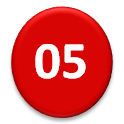Thus, whatever phase of things human and divine you have apprehended, you will be wearied by the vast number of things to be answered and things to be learned. And in order that these manifold and mighty subjects may have free entertainment in your soul, you must remove therefrom all superfluous things.
Seneca, Letter to Lucilius 88
Of the Chess Life columns I used to read one of my least liked was that of GM Andrew Soltis. Probably because back then it was one of the few columns written in descriptive notation or something. However, over the last few years I've found that he has brought out some pretty useful books to the market and now in FAN. Not being made of stone, I have bought some of these and have been quite pleased with them, the latest being Studying Chess Made Easy.
Its message in a nutshell: There must be a way to sort out all the chess material.
The problem is of course, too much of it, and too little time. To that effect, Soltis' tries to channel the reader's efforts to the areas were they'll count the most.
The title is a bit misleading, a more appropriate one would've been "Build your own study regime". Even he doesn't explicitly say so, Soltis gives pieces of a puzzle that can be rearranged in a myriad of ways according to the reader's current necessities and time constraints. Accordingly, the reader must provide her own input and figure out by herself what to tackle at any given time. Once, solved the how to, is the meat of the book.
For each phase of the game he presents the problems to study and gives advice on how to get the most the player's study time in improvement. He illustrates most points with game fragments (that break the flow of the argument IMO). The "easy" part which the title alludes to is the less material one has to go through. However, though good, some of his recommended improvement exercises demand dedication from the student.
The software front might be the weakest area of the book. Soltis does give some advice on how to make better use of it, but doesn't go deep into it (then again, maybe it also another "unnecessary") for improvement. There is also no how to go over your games.
Now, Soltis writes from the point of view of an insider. From his bibliography one can gather he is well acquainted with the Soviet teaching methods and has along career as a writer. However , there's no explicit guarantee that what he recommends will work. No study backs what he says, meaning one is putting his faith on his words alone. There have been studies made by outsiders here and there on learning and chess, but none of their results are incorporated here. So one has to take this in account and perhaps adapt accordingly.
Also, it is not a one stop shop. Other books and material will have to be read and games to be played, but all according to an overarching approach. Might not be the ultimate solution, but as it goes, looks close and since it is readily available, why not?










